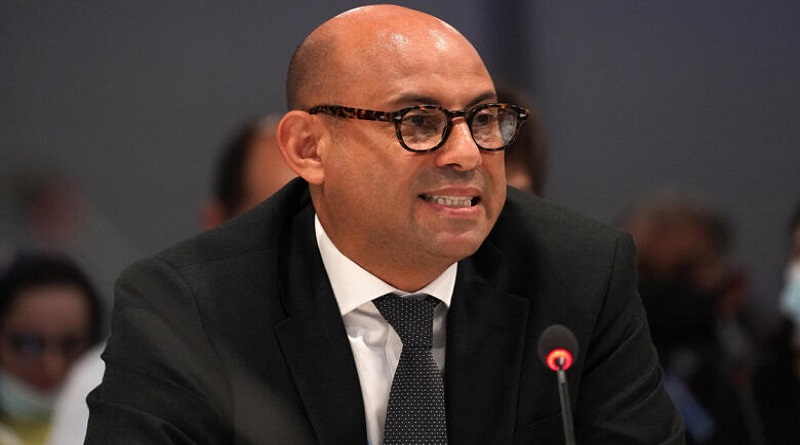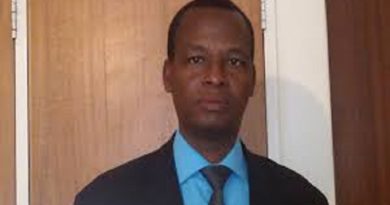African countries urged to seize economic opportunities through new climate plans
African governments are being encouraged to present their new national climate plans as opportunities to supercharge economies and boost living standards across the continent, as deadlines approach for all countries in the Paris Agreement to submit these plans.
“Strong new national climate plans are blueprints for stronger economies, more jobs and rising living standards, across all African nations. Strong plans open the door to new industries, large-scale investment, more affordable clean energy accessible to all, and more resilient infrastructure, as climate disasters hit African nations harder each year,” said UN Climate Change Executive Secretary Simon Stiell.
“Africa is not just on the frontlines of climate impacts; it is also at the forefront of solutions. Right across the continent, we are already seeing massive potential and innovations which cut planet-heating pollution and build more climate-resilient economies. Strong new national climate plans are the key to converting that potential into real-economy outcomes at scale, including the millions of new jobs they create,” Stiell added.
The United Nations is calling on all countries to submit their new plans, formally called Nationally Determined Contributions, or NDCs, as soon as possible ahead of key milestones, including the UN Secretary General’s September Climate Summit and November COP30 in Brazil. September will be an important milestone, but submissions will continue in the run-up to COP30, with each plan helping to limit global heating to 1.5 degrees Celsius and protect all peoples, while also unlocking jobs, growth, and economic benefits at home.
While particular responsibility rests with the largest economies, whose choices determine the global trajectory of emissions, it is essential that every nation puts forward its most ambitious plan, both to strengthen humanity’s collective response and to drive each nation’s own prosperity and security.
Examples from Across Africa
In South Africa, the NDC process is framed around a just transition that protects workers and communities while scaling renewables to strengthen energy security. International partnerships are signalling momentum, bringing together governments, public financiers, and private investors to support South Africa’s shift from coal to clean energy – growing from USD 8.5 to 11.6 billion.
Nigeria is advancing a whole-of-government and society approach, linking climate action to job creation, poverty reduction, and improved energy access. Over 85 million people still lack electricity, making decentralised renewables critical. Large-scale solar is expected to generate 33,905 direct green jobs by 2030, the micro-solar sector is already employing youth as “energy officers,” the Great Green Wall has restored more than 5 million hectares, and the country’s extensive mangroves provide carbon storage and flood protection. With a population projected to surpass 400 million by 2050 and GDP already over USD 470 billion, Nigeria has unparalleled potential to be a powerful leader in Africa’s green transition. Its upcoming climate plan is being designed as a national investment strategy to generate millions of green jobs by 2035 and secure a strong share of the USD 2.2 trillion global clean energy market. The transformation is already underway: over 170 solar mini-grids are already operational, bringing reliable electricity to nearly 6 million people, while young entrepreneurs are driving innovation in recycling, clean transport, and sustainable agriculture.
Morocco has emerged as a regional leader in renewable energy, with the Ouarzazate solar complex among the largest in the world. It stands as a positive example of how national ambition can deliver clean power at scale.
Recent milestone UN climate events, including Climate Week in Ethiopia and the Adaptation Expo in Zambia, have showcased innovative and practical new climate solutions emerging right across African nations, helping them to be scaled up and replicated across the continent and globally.
Momentum for strong climate action by and for African nations is building following the Africa Climate Summit in Addis Ababa last week, where leaders called for climate action to be treated as a driver of development and investment; and the Nairobi Declaration agreed by African leaders at the Africa Climate Summit in Nairobi in September 2023, which highlighted the continent’s role as a driver of global solutions. Countries are being urged to turn political signals into concrete plans that deliver for people and economies, echoing Simon Stiell’s message that delivery is the essential driver of climate justice and economic opportunity.
Through initiatives like the African Continental Free Trade Area, African nations can build resilient regional supply chains, export green goods and services, and foster shared prosperity across borders.
Climate finance remains central and a vital enabler of stronger climate actions by vulnerable and developing countries. Climate finance is not charity but an investment in shared prosperity, essential to convert climate ambitions into real-economy outcomes, strengthen global supply chains which all economies rely on, and ensure the vast benefits are spread much more widely across all nations in Africa and the developing world.
The COP29 UN Climate Conference in Azerbaijan last year reached a new global agreement to triple climate finance to USD 300 billion per year. This must be delivered in full, and a new Finance Roadmap expected at COP30 in Brazil this November will be key to scaling climate finance to USD 1.3 trillion annually by 2035.




